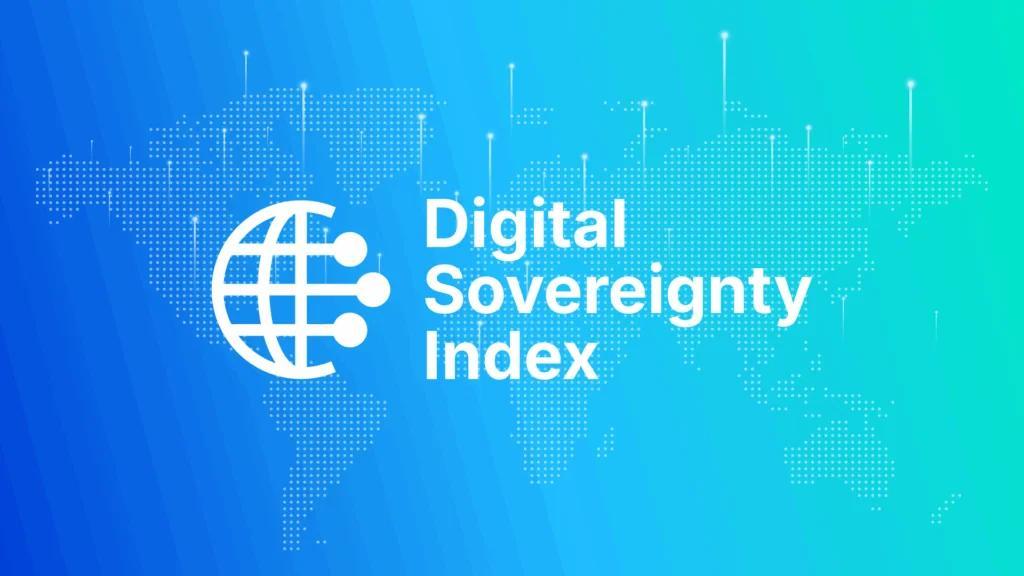Africa-Press – Ghana. Faced with potential dependency and asymmetries of power, small states are finding innovative ways to assert their digital sovereignty, argues Emrys Schoemaker and Tom Kirk.
On 18 November 2025, leaders of the European Union meet in Berlin for the Summit on European Digital Sovereignty. The focus was on reducing European technological dependencies and increasing global competitiveness. The question is vital for a large trading block like Europe, but the question of digital sovereignty is increasingly important for small states too.
When Amazon Web Services experienced a 15-hour outage on 20 October 2025, it disrupted services from Snapchat to banking platforms, potentially causing hundreds of billions in economic damage. The timing was particularly sensitive for Switzerland. Just after Swiss voters narrowly approved a state-run digital identity system by a razor-thin 50.4 per cent majority. Next time a cloud service goes down, will it prevent a country from running something as fundamental as its ID card system?
Why small state digital sovereignty matters
The term digital sovereignty has entered global policy debates as governments grapple with how to govern their digital futures. For some – particularly in Europe – it means reducing dependency on US tech giants. For others, such as China, it underpins state control of data and networks.
But for small states, digital sovereignty has a different register. It is not about geopolitical dominance or economic protectionism; it is about survival and self-determination in a deeply asymmetric system.
Digital sovereignty refers to a state, an economy, or an individual’s autonomous control over its digital means and activities. For many small states, control over that destiny is conditioned by dependency on, among others, foreign-owned cloud providers, donor-funded digital public infrastructure, or neighbouring powers’ networks.
This matters because the infrastructures of the digital state—identity systems, payment rails, data registries, and communication networks—are not neutral. They embody the norms and interests of those who design and finance them. As Chatham House has warned, when digital governance marginalises smaller states, it risks reproducing the very inequalities the internet once promised to transcend.
Digital sovereignty is not simply about data localisation or cybersecurity; it is about agency – the ability for a country to shape their own digital path amid global dependencies.
Navigating asymmetry
Switzerland’s approach provides a useful starting point to understand how small states are reframing sovereignty. The country has invested in the ALPS AI initiative to build trusted, value-aligned artificial intelligence by linking software development to democratic oversight and value-based governance. Switzerland is experimenting with what might be called sovereignty through sophistication: using technical capability and democratic processes to assert control without isolation.
Other countries are facing the same questions, but in different contexts, are having to find their own answers.
In Kosovo, digital sovereignty is tied to both aspiration and defence. As an EU accession candidate with contested international recognition, Kosovo’s embrace of digital transformation is part of a larger project of statehood. By aligning with the EU’s Digital Europe Programme, the country is signalling its commitment to European norms while building administrative capacity. For Kosovo, digital sovereignty is both a pathway to integration and a shield against interference, illustrating how sovereignty can be instrumentalised as diplomacy. Yet dependence on foreign technology and regional connectivity, especially with Serbia, exposes its fragility.
Further east, Bhutan offers another story. Wedged between India and China, the Himalayan kingdom’s innovative use of hydropower to fuel cryptocurrency mining operations represents small state ingenuity at its finest. This strategy serves multiple sovereignty purposes: it generates foreign exchange without extensive market access, it builds blockchain expertise that is applicable to other domains and creates revenue streams independent of traditional aid or trade arrangements. But this digital innovation coexists with fundamental infrastructure dependence; all of Bhutan’s internet connectivity routes through India, creating vulnerabilities no amount of cryptocurrency can address.
Across the Indian Ocean, Lesotho faces yet another asymmetry: complete geographic encirclement by South Africa. The kingdom’s National Digital Transformation Strategy 2024–2030 recognises that while integration with South African networks is unavoidable, autonomy can still be built through data-governance frameworks, digital-skills investment, and regional partnerships. Lesotho’s experience underscores a recurring truth: for small states, sovereignty is about negotiated interdependence – finding degrees of freedom within constraint.
Taken together, these stories point to a pattern. Digital sovereignty for small states is not a binary condition but a spectrum of strategies – technical, diplomatic, and cultural – through which autonomy is continuously enacted and contested.
Strategic approaches and collective action
These varied experiences suggest several strategic approaches for small state digital sovereignty.
First, selectivity is essential. Small states cannot achieve comprehensive digital independence and must strategically choose where to assert sovereignty versus accepting managed dependencies. Switzerland’s focus on AI and digital identity, Kosovo’s emphasis on e-governance, and Bhutan’s cryptocurrency strategy all represent deliberate choices about where to concentrate limited resources. As sovereignty is increasingly framed through a ‘stack’, selecting where in the ‘stack’ to focus on strengthening sovereignty is critical.
Second, regulatory alignment can, paradoxically, enhance sovereignty when strategically deployed. Kosovo’s voluntary adoption of EU standards before membership and Switzerland’s selective harmonisation with international frameworks show how small states can leverage larger governance systems for protection and legitimacy while maintaining autonomy in critical areas. Governance – and particularly governance ofF interoperability – is a critical enabler of sovereignty.
Third, innovative resource deployment can create unexpected sovereignty opportunities. Bhutan’s hydropower-to-cryptocurrency pathway demonstrates how traditional assets can be reimagined for digital independence. Small states’ agility may allow them to exploit niches that larger powers overlook or cannot efficiently pursue.
Fourth, collective action among small states could amplify individual efforts. The Small Island Developing States partnership offers a potential model: pooling resources for shared infrastructure, jointly negotiating with tech providers, and developing common standards tailored to small state needs. A similar approach for digital sovereignty could help small states achieve economies of scale while maintaining independence from both Big Tech and larger neighbours.
A polycentric future
In an era of fragmenting multilateralism, small states’ ability to maintain agency contributes directly to a more resilient global system.
In a recent report, TNO (an independent public research organisation) argued, digital sovereignty requires bridging the gaps between national control and global interoperability. That bridging role is precisely where small states excel: their survival depends on navigating interdependence rather than denying it.
A truly polycentric digital order that is resilient to geopolitical fragmentation will only emerge if the experiences of small states are brought to the centre of global governance debates. They remind us that sovereignty is relational, not absolute; it is built through negotiation, cooperation, and continuous adaptation.
From the Alps to the Himalayas to the Lesotho Highlands, small states are showing what it means to exercise agency in a system tilted against them. Their experiments, technical, political, and ethical, hold lessons not just for themselves, but for everyone seeking to build a more just and plural digital world.
LSE
For More News And Analysis About Ghana Follow Africa-Press







